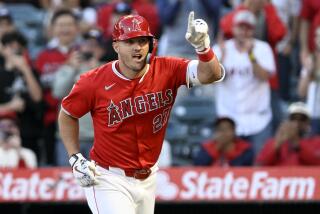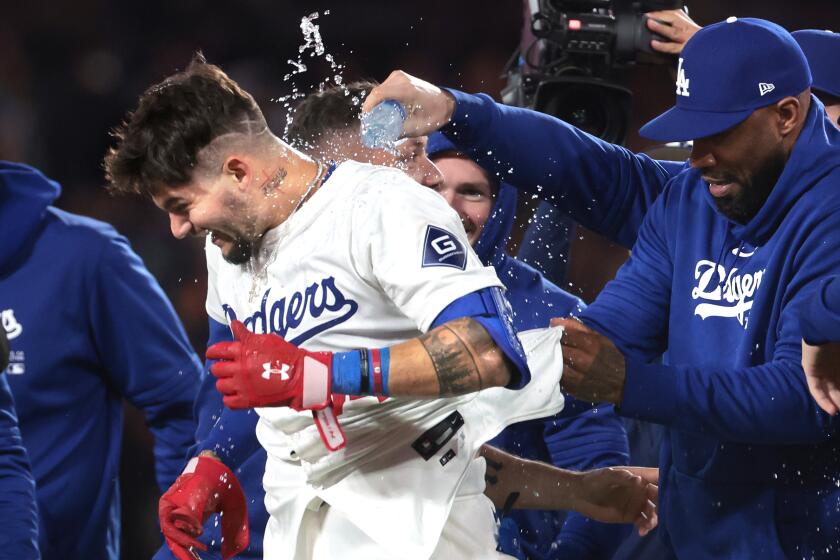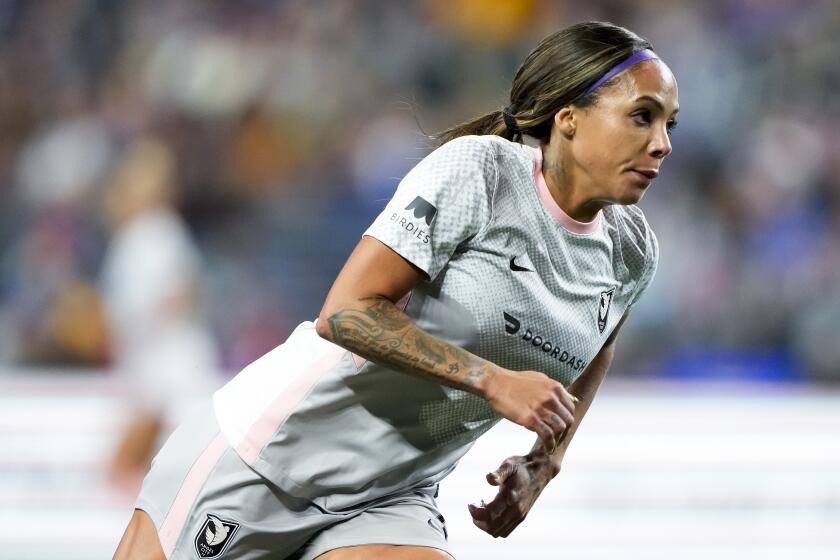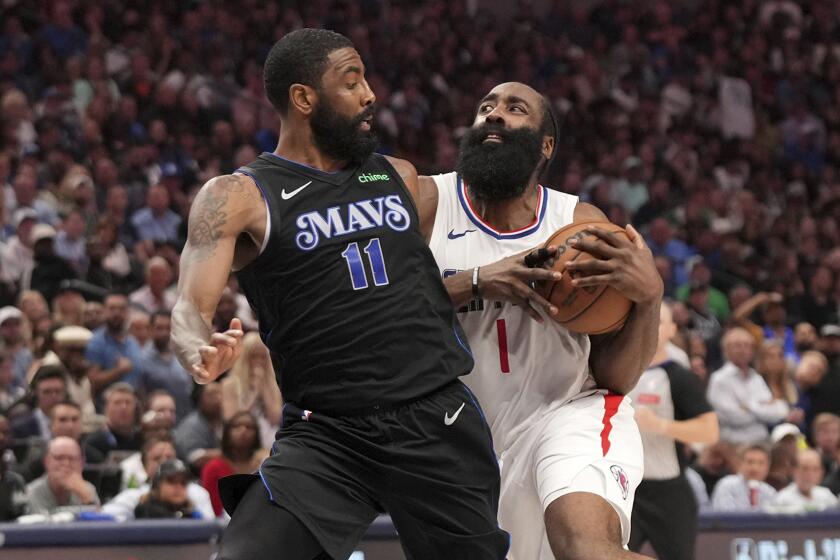Are these Angels too good to be true World Series contenders?
Too much of a good thing is not a good thing. Too much hot fudge can spoil the sundae.
A current case in point is your Los Angeles Angels of Anaheim.
We have been giddy since owner Arte Moreno and his TV partners bought Albert Pujols and C.J. Wilson. Baseball fans and sportswriters love to win World Series on paper, and these two seemed to put the Angels under the bright lights in late October.
But did they?
Pujols is not the problem. Waiting for his first homer as an Angel is a sideshow. He will hit. He is too good not to. His three doubles Thursday night weren’t a fluke.
Nor is the acquisition of Wilson the problem. Pitching is one area you can’t overbook.
The problem is the dominoes created by the acquisition of Pujols and the return of power-hitting Kendrys Morales. It was two more slices of cheese on an already gooey burger.
Torii Hunter is still there. So are Vernon Wells, Peter Bourjos, Bobby Abreu, Mark Trumbo, Alberto Callaspo and Maicer Izturis. With Chris Iannetta set behind the plate, Pujols at first base, Howie Kendrick at second and Erick Aybar at shortstop, that leaves four on-field positions and a designated hitter to be divvied up among eight players.
That may work if the extra guys think like extra guys.
But Trumbo didn’t lead the team with 29 home runs and 87 runs batted in last year just to spend his next year playing every third game. Nor did Bourjos save half a dozen games and nearly win a Gold Glove in center field with the expectation of spending the summer of 2012 guessing whether he would play tomorrow. Hunter, Wells and Abreu haven’t put up remarkable career numbers so they could spend the end of those careers guessing when they would play next. Nor would one consider the skills of Callaspo and Izturis merely those of utility players.
Then there is Mike Trout, the young superstar-in-waiting, who is playing in Salt Lake City. He wasn’t great in his time in the majors last year, but he showed enough to hint at good things to come. He has started his triple-A season like a player who has put that level behind him.
In short, the Angels organization has outdone itself in the category of talent acquisition, and now it must deal with the consequences.
The Angels lost three of four this week against the Oakland A’s, a team that strikes fear in the hearts of no one. The A’s left town with the Angels last in the AL West with a 4-9 record, already seven games behind the Texas Rangers. Yes, it’s early. Yes, it is a 162-game season. Yes, that is the predictable party line taken by all except the ever-wise Hunter, who says that leaning on the old “it’s a marathon, not a sprint” rationalization is dangerous and counterproductive.
Manager Mike Scioscia and General Manager Jerry Dipoto, expected to be in the catbird seat this season, may soon be in need of a bunker. So far, Angels baseball has looked more like musical chairs. Scioscia has used a dozen different lineups.
Scioscia seems to be sticking with the high-priced veterans, facilitating playing time for the likes of Wells and Abreu. There is logic to that. There is also logic to seeing what a regular dose of Bourjos, Trumbo and Trout might do.
Baseball players are no different than any of us. They thrive on routine, they grow from a base of regular activity. They need to have their most dramatic moment of the day not be when the lineup card is posted.
Scioscia, clearly concerned and having proven over the years to be among the best at solving this sort of lineup Rubik’s Cube, said recently that his team needs “better chemistry and to grind.” Better chemistry comes from familiarity. Different lineups don’t breed familiarity.
Scioscia and Dipoto have tough choices ahead. The boss gave them lots of building material and lots of tools, but they are still trying to fill the cracks in the foundation.
The starting pitching should be fine, the relief pitching not. It is a put-your-hands-over-the-children’s-eyes trauma every time the bullpen gate opens.
But the offense is the real problem. It is 20 gallons of talent trying to squeeze into a 10-gallon hat.
Trades are always possible, but less likely when you have a half-dozen or so players with no-trade or trade-protection clauses in their contracts. And less likely when those players make so much money that other teams that would love to have them can’t afford them. The easiest to trade, the lower-salaried Trumbo, Bourjos and Trout, are likely to be those most sought by other teams; also, the least likely for the Angels to move.
Two things can happen.
The hodgepodge can somehow jell and the Angels start to win.
Or the Angels are forced to follow the age-old theory of success preached by baseball’s legendary Branch Rickey.
He called it addition by subtraction.
More to Read
Get our high school sports newsletter
Prep Rally is devoted to the SoCal high school sports experience, bringing you scores, stories and a behind-the-scenes look at what makes prep sports so popular.
You may occasionally receive promotional content from the Los Angeles Times.







